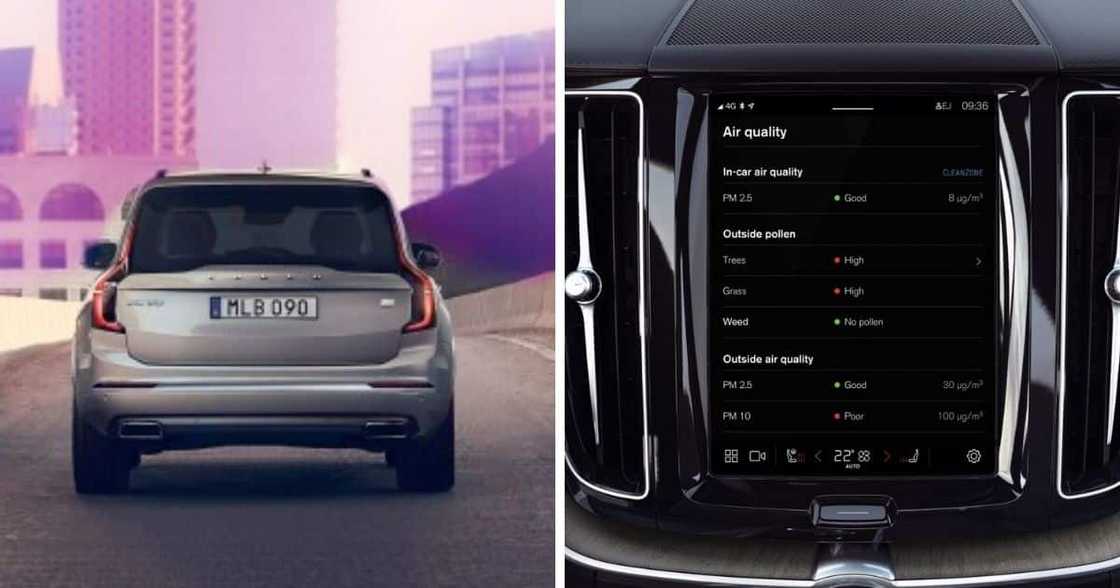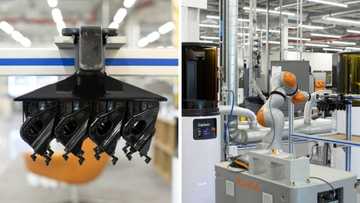Volvo’s Advanced Air Purification Tech Filters Out the Bad Stuff and Allows Owners to Breathe Cleaner Air
- Volvo is taking steps to offer its customers purified air quality inside its latest cars, helping people breathe cleaner air
- The aim is to assist those who suffer from allergies, asthma and air pollution that affect hundreds of millions of people around the world in a negative way, according to data from the World Health Organisation and the World Allergy Organisation
- The Swedish company believe that clean air offers multiple benefits from a personal health and safety perspective
PAY ATTENTION: Click “See First” under the “Following” tab to see Briefly News on your News Feed!
Volvo's latest innovation is called 'The Advanced Air Cleaner', which is part of the latest air purification technology available on new 90 and 60 series models filters out pollen and has been certified asthma and allergy-friendly, by Allergy Standards Limited (ASL).
The Swedish carmaker says it removes up to 99.9 per cent of grass, tree and weed pollen allergens from incoming air. Allergy Standards Limited (ASL) is an independent certification programme that helps consumers identify products that are suitable for people with asthma and allergies.

Read also
"Can it tap?": This may be a phrase of the past as Mastercard offers payment by smile or wave

Source: UGC
A cool touch is that the system is able to assess whether to purify the air in the cabin of their car with the help of live data that shows actual outdoor pollen and air quality levels in the car’s centre display, MotorPress reports. This in-house developed app makes Volvo Cars the first car maker to provide live data of outdoor pollen levels to drivers.
Cars equipped with the company’s latest air purification technology also come with a sensor, launched globally in 2020 as a world-first feature in Volvo cars, that measures PM 2.5 levels inside the cabin and allows customers to compare those to outside levels, Automotiveworld reports.
PAY ATTENTION: Never miss breaking news – join Briefly News' Telegram channel!
Dr. Maria Bernander, occupant health effects expert at Volvo Cars says:
“By helping our customers improve the air quality inside their Volvo car, we will help reduce the adverse health effects associated with air pollution, allergens and fine particulates, in addition to personal health benefits, studies have shown cleaner air can also help boost concentration which can help you stay more focused during the drive.”
Additionally, the Advanced Air Cleaner can remove more than 97 per cent of airborne viruses that try to enter the cabin via the air filter and remove existing viral levels in the vehicle by up to 95 per cent. Results from recent tests performed by the independent Austrian research and testing institute OFI show that the viral filtration efficiency of its filter and ioniser makes the technology highly effective against airborne viruses.
Volvo SA offers alternatives to petrol powered engines, electric and hybrid options now available
Volvo South Africa's line-up now features predominantly electric, plug-in hybrid and mild-hybrid models, Briefly News reports.
The switch comes as the carmaker's global strategy to become a fully-electric car company gathers momentum, Only the brand's smallest model, the XC40, has combustion engine options in the form of the T-badged models. The XC40 P8 Recharge is the brand's first fully-electric car on sale in South Africa and the initial batch of models were sold out before the small premium SUV landed here.
The vehicles launched included the fully-electric XC40 P8 Recharge, as well as the XC60 T8 Recharge and XC90 T8 Recharge plug-in hybrids. The B5- and B6-badged mild-hybrid variants make up the remainder of the XC60 and XC90 line-ups which features the Kinetic Energy Recovery System (KERS).
Source: Briefly News


